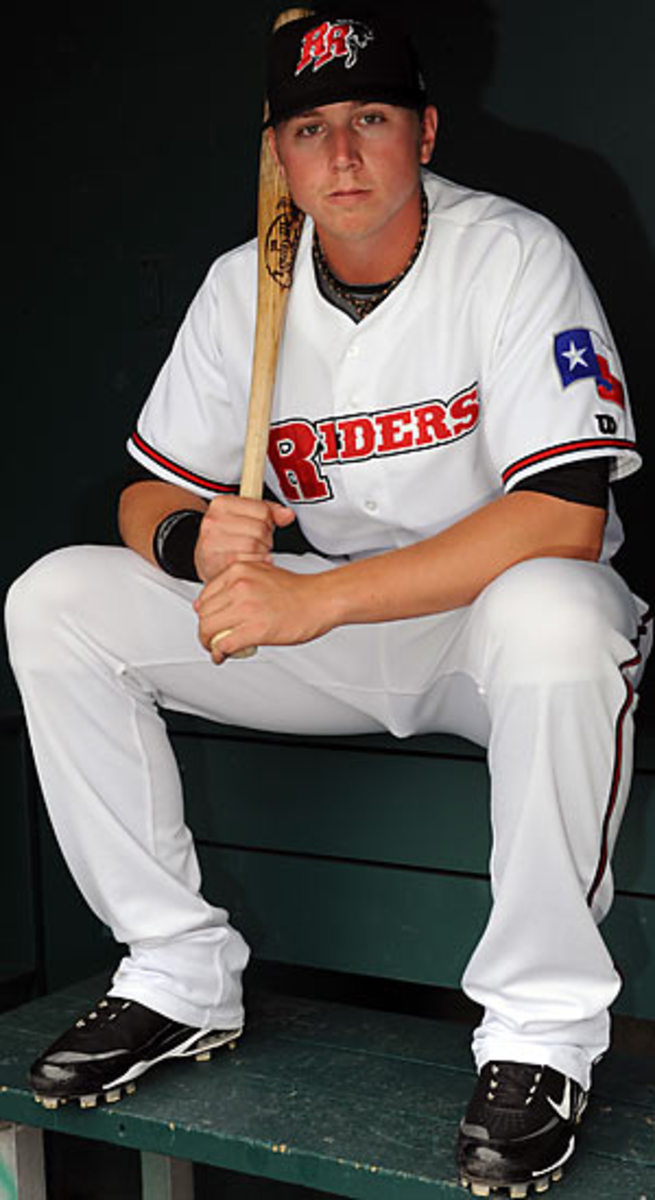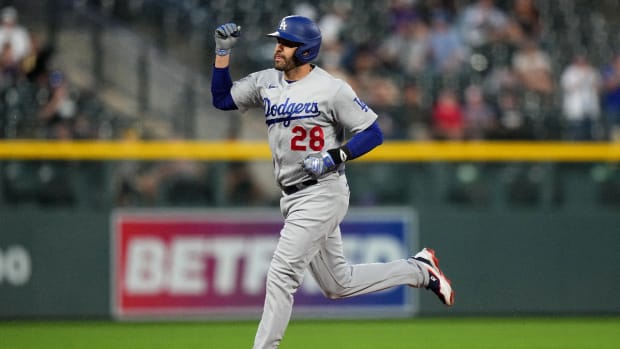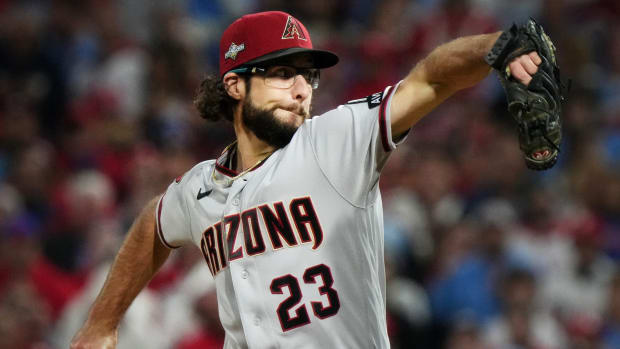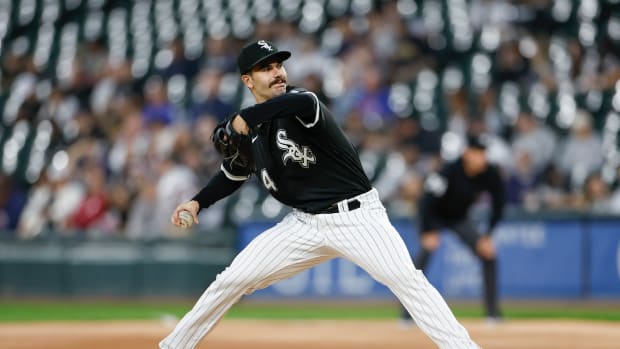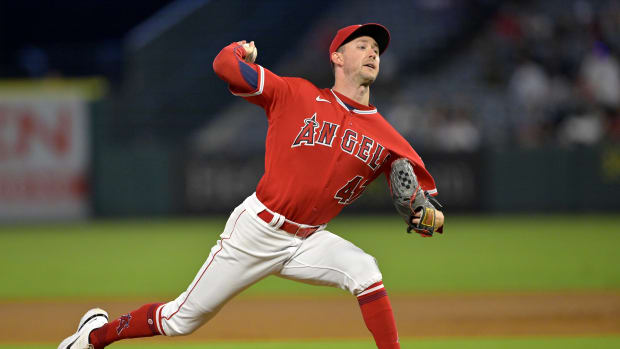Powerful Team USA has emerged as favorite in overlooked World Cup
There's a World Cup going on? Really?
It's hard to tell in the United States these days, but the world's largest international baseball tournament is winding down in Europe, and the U.S. is the leader in the clubhouse. The 2009 World Cup has spanned seven nations -- they played first-round games in baseball hotbeds such as Croatia, the Czech Republic and Sweden -- and nearly three weeks. It's not quite the soccer World Cup, and it's not even the World Baseball Classic, but it is a 22-nation event that has involved 100 players from major league organizations, not to mention Cuba's top-level national team.
"It's got to be the most expensive international tournament ever," said one scout who's a veteran of international baseball. "It's not like they had a ballpark just waiting for everyone in Zagreb or Sundbyberg [Sweden]. This is unprecedented."
Cuba has won the World Cup 25 times, while no other nation has won more than three. The last time there was a World Cup, the United States beat Cuba in the championship game. On Thursday, Team USA beat Cuba again, taking a 5-3 victory in Nettuno, Italy. It was the club's 12th straight victory after a Cup-opening loss to Venezuela. It made Team USA the favorite and was another sign of the parity that has come to international baseball.
"Our guys have persevered through a lot of irregular travel and the schedule," U.S. manager Eddie Rodriguez said in a postgame interview Thursday from Nettuno. "We've got a close-knit group, which is unusual for the length of time we've been together. We know what's at stake. We know what our mission is."
Cuba's mission is to get back on top. The island nation has to win Friday (or get losses by the Netherlands or Puerto Rico) to advance to the final, but in recent years, the Cubans have not been able to close the deal. Since winning the 2005 World Cup in the Netherlands against a fairly weak field -- Japan, South Korea and the U.S. sent less-than-stellar rosters -- Cuba has not won a major international tournament, and the landscape has changed. The Olympics are no longer the biggest tournament, as baseball was voted out of the program through 2016. In its stead, Major League Baseball has created the World Baseball Classic, with Japan's big leaguers Ichiro Suzuki and Daisuke Matsuzaka having led their nation to the first two championships, in 2006 and 2009. In the last Olympics, South Korea beat the Cubans for gold, and Cuba didn't even reach the WBC final round this past spring.
Cuba sent most of its 2009 WBC roster to Europe for the Cup, with the obvious exception of hard-throwing lefthander Aroldis Chapman. The 21-year-old phenom, whose 100-mph fastball, hard slider and lithe, athletic body send scouts' hearts racing, left the Cuban national team during the summer's World Port tournament and has been working to become a free agent. He even has established provisional residency in Andorra, a small principality in the Pyranees Mountains between Spain and France. He's likely to sign soon for an eight-figure contract that could exceed the four-year, $32 million contract Jose Contreras signed after he defected in 2002.
Cuba's national team program was grooming Chapman to become the new ace, something Cuba hasn't had since Contreras' defection to the Yankees. That hole has been fatal in recent years, and young lefty Maikel Folch proved unready Thursday, as Team USA got to him early and often. Mets prospect Ike Davis -- son of former big league pitcher Ron Davis -- crushed an RBI double to center field in the first inning. Former Twins big leaguer Terry Tiffee chased Folch in the third inning with a two-run homer.
It was Tiffee's fifth homer of the event and No. 35 of the tournament for the Americans, by far the most of any team. Team USA's power-oriented style has proven effective internationally in recent years. The U.S. has proven adept in recent years at mixing top prospects with minor league veterans such as Tiffee, who played on the '08 Olympic club and has emerged, in Rodriguez's words, as the captain of this year's club.
American minor leaguers beat Cuba in '06 (in Havana for the Olympic qualifier) and in the '07 Cup. That 2007 event featured an American team heavy on prospects who have gone on to major league success. Jayson Nix, now of the White Sox, wI as the tournament MVP, while the top players on the American roster included the Rays' Evan Longoria, the Cardinals' Colby Rasmus, and Twins left-hander Brian Duensing. This 2009 American team has similar prospect talent, including 2008 first-round picks Pedro Alvarez (Pirates), Jason Castro (Astros) and Justin Smoak (Rangers).
USA Baseball has experienced more success when it fields teams of players before they become rock stars. The U.S. won gold in 2000 in the Sydney Olympics with a club of future big leaguers, led by Ben Sheets, won in Cuba in '06 with key contributors such as Kevin Slowey (Twins) and Michael Bourn (Astros), and won bronze in 2008 in Beijing with a team that included Brett Anderson (Athletics), Dexter Fowler (Rockies) and Stephen Strasburg, the 2009 draft's No. 1 overall pick by the Nationals. America's big leaguers, meanwhile, have failed to medal in two WBC's.
On the current roster, Smoak has emerged as the team's star, with nine home runs to set a USA Baseball record. The switch-hitter out of South Carolina was a high school teammate of Orioles rookie catcher Matt Wieters and is on track to fulfill the athlete development model that USA Baseball dreams of. He played for the college national team in 2007, is on the team now as a minor leaguer and seems destined to suit up in a WBC down the line.
"He's really been carrying us," Rodriguez said. "He's shown great plate discipline and patience, and he knows what to do when he's ahead (in the count). It's not just home runs; it's big hits, in clutch situations.
Cuba's five-tool center fielder, 23-year-old Alfredo Despaigne, has matched Smoak home run-wise. He's part of the surprising reality: Contrary to its reputation, Cuba has plenty of hitting talent but not enough pitching.
The best Cubans in the big leagues are all hitters, from shortstops Alexei Ramirez (White Sox) and Yunel Escobar (Braves) to Kendry Morales (Angels). Before he defected, Morales was a two-way star for Cuba, and he out-pitched current L.A. teammate Scott Kazmir in a 2001 junior tournament in Cuba. But Morales was destined to be a hitter, not a pitcher, and most of Cuba's hyped pitchers have fallen short of expectations. Orlando (El Duque) Hernandez lived up to his billing, and his half-brother Livan Hernandez has had a long, durable career that peaked in 1997, when he was a rookie. But others, such as Danys Baez, Jose Contreras and Rolando Arrojo, have had short peaks and generally failed to dominate in the major leagues.
Sunday's final will have plenty of future big leaguers -- especially if the U.S. gets its rematch with Cuba -- but little hype. If present big leaguers aren't involved, American fans won't apy attention. But American teams have proven that the fewer big league players they have involved, the better.






























